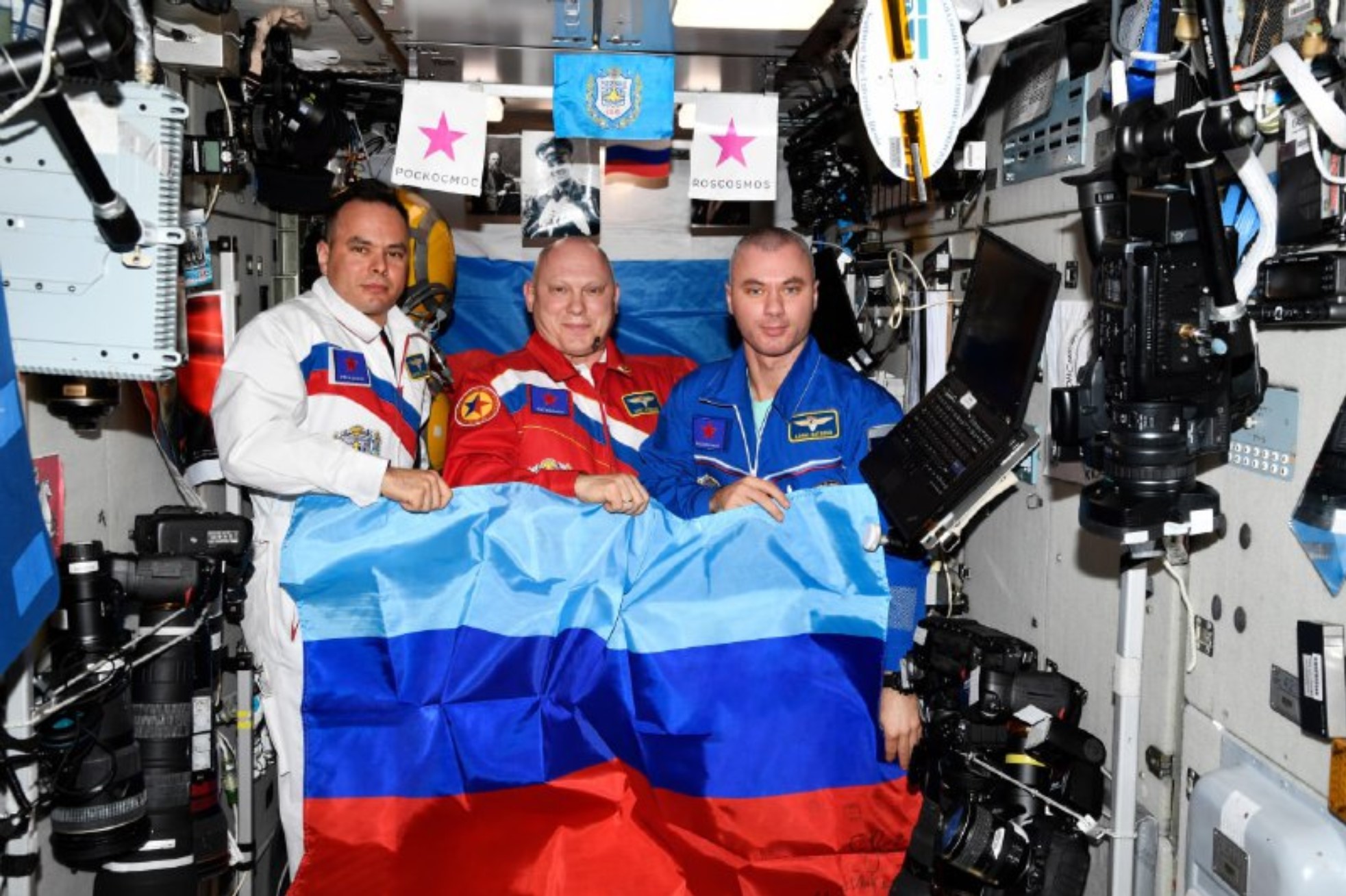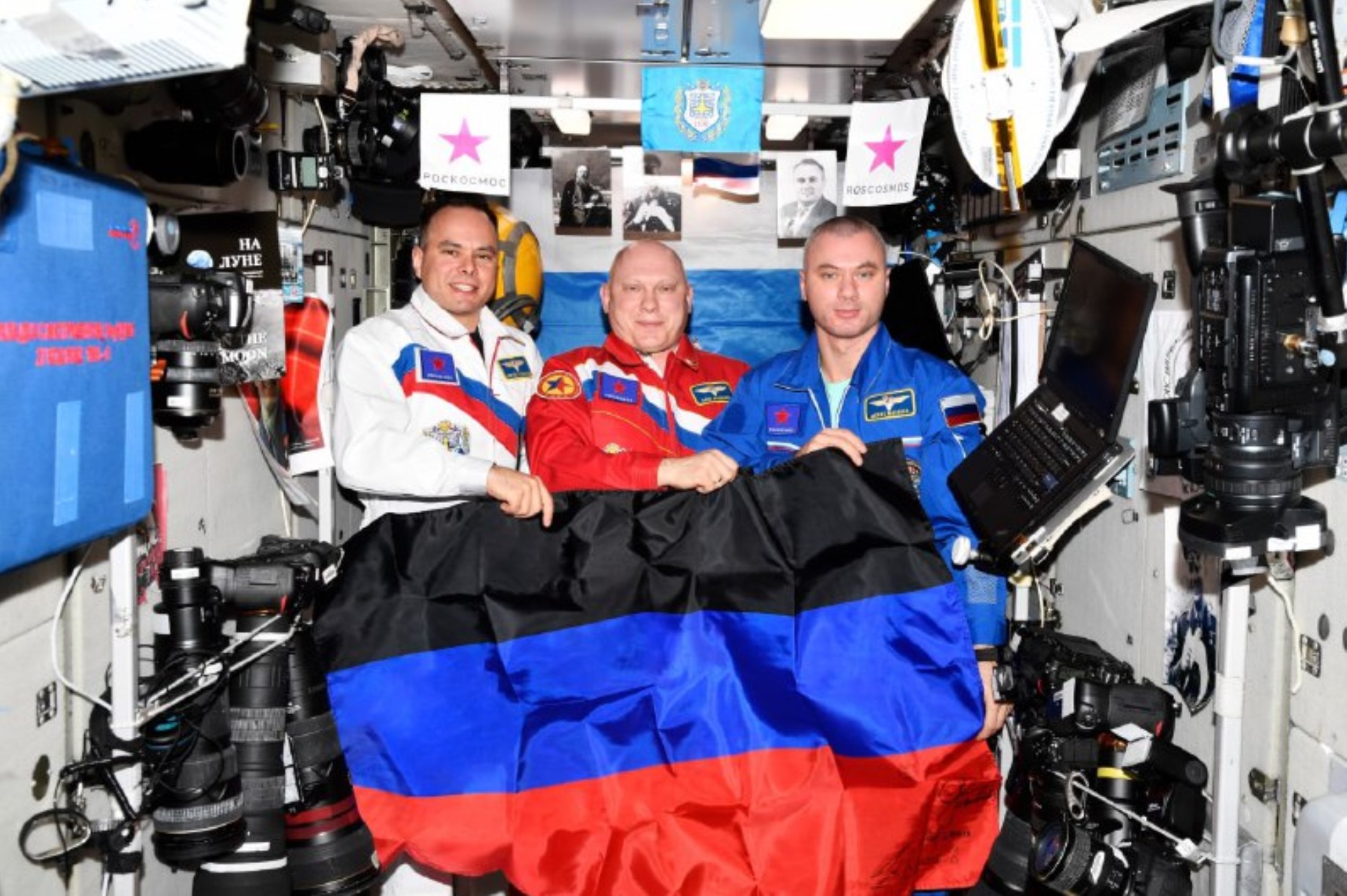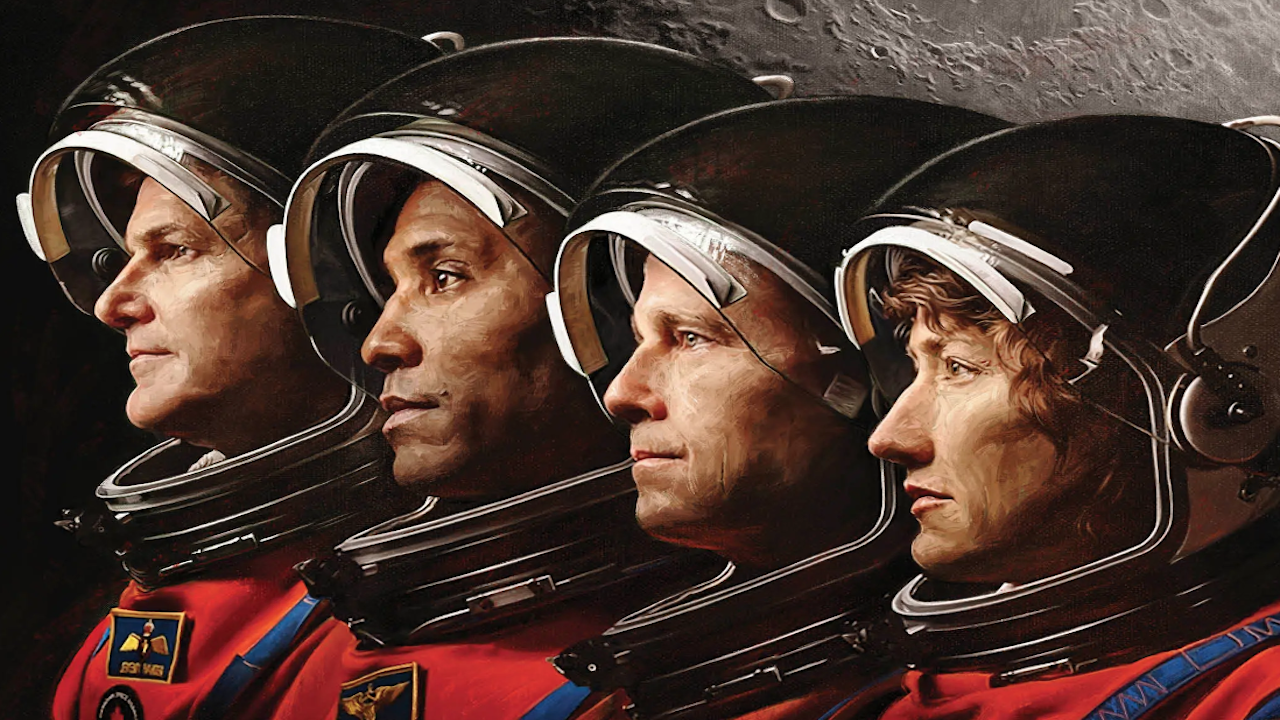Russian cosmonauts spread anti-Ukraine propaganda from space station
The ISS is caught in a propaganda war.

Russia's federal space agency Roscosmos recently shared a pair of images of its cosmonauts aboard the International Space Station (ISS) brandishing the flags of the Luhansk People's Republic and the Donetsk People's Republic, two Russian-backed separatist territories in eastern Ukraine.
The images are being described as blatant propaganda, an unfortunate misuse of the ISS as a political bargaining chip following Russia's invasion of Ukraine and the West's economic sanctions that ensued.
Along with the Donetsk People's Republic, Luhansk is one of two breakaway regions in the eastern Donbas region of Ukraine. Russia has been arming separatist forces throughout the region since 2014, and fighting has been particularly fierce over these two regions since Russia's most recent invasion of Ukraine began in late February 2022. This weekend, Russian President Vladimir Putin congratulated the Russian military for "achieving victory" in Ukraine's Luhansk region.
Related: Russia's invasion of Ukraine: Astronauts share their unique perspective
The propaganda images taken aboard the ISS were posted on July 4 by the Roscosmos account on the social media site Telegram. The photographs depict cosmonauts Oleg Artemyev, Denis Matveyev and Sergey Korsakov smiling and holding the tri-color flags of both Luhansk and Donetsk. Artemyev became ISS commander in May 2022.
The two images are accompanied by a caption that leaves no room for doubt that some at Roscosmos are still attempting to use the International Space Station for pro-Russian, anti-Ukranian propaganda. "This is a long-awaited day that residents of the occupied areas of the Luhansk region have been waiting for eight years," the Roscosmos post on Telegram stated (translation by Google). "We are confident that July 3, 2022, will forever go down in the history of the republic."
Former NASA astronaut Terry Virts, who commanded the International Space Station in 2015, told Ars Technica that the image goes against the core values of the station, which is supposed to be a symbol of international cooperation and peace. "I am incredibly disappointed to see cosmonauts and Roscosmos using the International Space Station as a platform to promote their illegal and immoral war, where civilians are being killed every day," said Virts.
Breaking space news, the latest updates on rocket launches, skywatching events and more!
This latest Telegram post continues a trend of Russia's space agency attempting to politicize the space station. Roscosmos chief Dmitry Rogozin has been spouting a wealth of propaganda since Russia's latest invasion of Ukraine began on Feb. 24. For example, Rogozin made provocative statements that were taken by some as a threat that Russia might leave the ISS program. "I believe that the restoration of normal relations between partners in the International Space Station and other joint projects is possible only with the complete and unconditional lifting of illegal sanctions," Rogozin wrote on social media in April 2022.
Despite Rogozin's long history of hyperbolic threats, international cooperation on the space station has continued without incident since Russia's invasion of Ukraine.
Email Brett at BTingley@Space.com or follow Brett on Twitter at @bretttingley. Follow us on Twitter @Spacedotcom or on Facebook.

Brett is curious about emerging aerospace technologies, alternative launch concepts, military space developments and uncrewed aircraft systems. Brett's work has appeared on Scientific American, The War Zone, Popular Science, the History Channel, Science Discovery and more. Brett has degrees from Clemson University and the University of North Carolina at Charlotte. In his free time, Brett enjoys skywatching throughout the dark skies of the Appalachian mountains.

